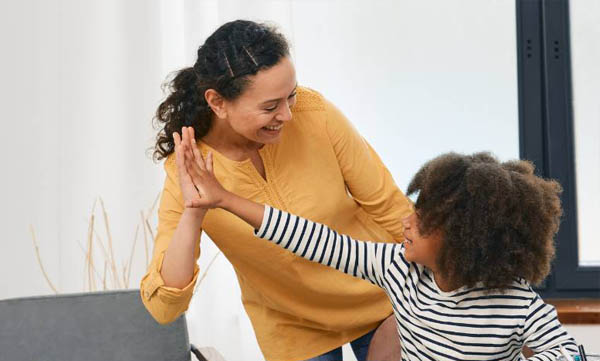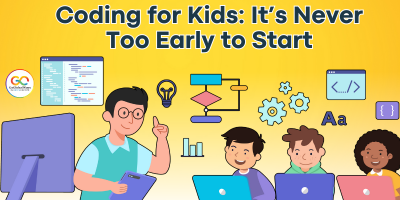We all want our kids to be healthy physically, but as parents and guardians, we also want them to be well both mentally and emotionally.
Children’s mental health issues are becoming more common. However, even though up to 1 in 5 children may have a mental health condition, many people find it embarrassing to discuss the mental health of kids. Learning more about child mental health illnesses and the stigma associated with them might help make the subject less scary.
Achieving emotional and developmental goals as well as acquiring positive social skills and problem-solving techniques are all necessary for maintaining mental health in kids. Mentally healthy children enjoy life more and are better able to succeed at home, at school, and in their communities.
Children with mental illnesses are said to have significant deviations from how they usually learn, act, or manage their emotions, which can be distressing and make it difficult for them to function during the day. Many kids periodically suffer from anxiety, and worry, or act out in unpleasant ways. A child may be diagnosed with a mental condition if their symptoms are serious and persistent and interfere with their ability to perform at play, at home, or at school.

Let’s explore the mental health issues facing kids today
Why should we discuss the mental health of kids?
If you don’t talk to kids about mental health, they will learn about it someplace else or from someone else. That source might not be accurate or trustworthy.
Media exposure is one of the most typical ways that kids are exposed to mental health issues. Furthermore, their representations aren’t always accurate or positive.
On the other hand, kids feel more comfortable approaching a source they can trust to ask questions without being judged when parents and kids have an open and honest talk about any issue, including mental health.
In what ways can stigma impact mental health?
Stigma can have a devastating impact on the mental health of a child. Stigma can lead to feelings of shame, guilt, and isolation, which can have a long-term effect on a child’s self-esteem and sense of worth. It can also lead to a child avoiding seeking help or support out of fear of being judged or seen as weak. Stigma can also make it difficult for a child to form and maintain healthy relationships, as they may feel like they are not worthy of them. All of these factors can lead to mental health issues such as depression, anxiety, and low self-esteem.
To help a child cope with stigma, it is important to provide them with a supportive and nurturing environment. This could include offering them unconditional love, acceptance, and understanding. It is also important to provide them with accurate information and education about mental health so they can understand their condition and feel empowered to seek help. Encouraging open and honest communication can also help a child feel heard and respected. Finally, it is important to challenge any stigma they may have. It may encounter them and create a safe space for them to express their feelings.
Social Media’s Effects on a Kid’s mental health
The impact of social media on the mental health of children can be both positive and negative. On the one hand, social media can offer kids important support networks and help them build self-esteem by providing positive reinforcement. On the other hand, however, social media can also have negative consequences. The constant exposure to cyberbullying, unrealistic body images, and unhealthy comparisons can be detrimental to a child’s mental health.
Some of the potential negative impacts of social media on mental health include depression, anxiety, sleep deprivation, and low self-esteem. Studies have even linked social media use to an increase in suicidal thoughts and self-harm. Additionally, the pressure to constantly be “on” and connected to social media can lead to feelings of stress, isolation, and loneliness.
To help protect a kid’s mental health, it’s important to monitor the amount of time they spend online. Parents should also set rules around the content they can view and the people they can interact with. Encouraging positive online activities like joining online communities, creating art, and participating in online games can also be beneficial. Finally, having honest conversations with children about the potential risks of social media and teaching them how to be kind and responsible online are also important steps to take.
The link between mental health and bullying
The link between mental health and bullying in kids is very strong. Bullying can have a devastating effect on the mental health of a child, leading to feelings of depression, anxiety, low self-esteem, and other mental health issues.
Bullying can also lead to physical health problems, such as headaches, stomachaches, sleep problems, and difficulty concentrating.

Here are some ways in which a kid can get rid of bullying:
- Reach out for help: Kids need to seek help if they are being bullied. This could include talking to a trusted adult or seeking professional help from a mental health provider.
- Build a support network: It can be helpful for kids to build a support network of friends and family who can provide them with emotional support.
- Practice self-care: Kids need to practice self-care, such as engaging in activities that they enjoy, getting adequate rest, and eating healthy.
- Children should be encouraged to speak up if they are being bullied. Kids should not be afraid to tell an adult or seek help if they are being bullied.
- Get involved: Kids should be encouraged to get involved in activities that they enjoy and to find activities that promote positive mental health.
- Develop coping skills: Kids should develop coping skills to help them manage their emotions and deal with stress.
- Practice positive self-talk: Kids should practice positive self-talk and focus on their strengths and abilities.
- Set boundaries: Kids should be encouraged to set boundaries with peers and adults to ensure that they are respected.
Read Also: How Healthy Competition Makes Kid Confident?
Awareness of Childhood Anxiety
Anxiety is a normal emotion that affects people of all ages. In children, anxiety can be especially difficult to identify and manage. Common signs of anxiety in children may include difficulty concentrating, irritability, physical symptoms such as headaches or stomach aches, and avoiding activities or situations that may cause fear or distress.
It’s important to understand the causes of anxiety in children as well as the strategies that can help them cope. Parents and caregivers can help children by providing a safe, supportive environment and teaching skills to help manage their anxiety.
Some strategies for helping children manage their anxiety include:
- Encouraging positive self-talk: Help your child talk positively to himself or herself about anxiety-provoking situations.
- Providing structure and routine: structure and routine can help children feel secure and more in control.
- Talking and listening: Talk to your child about their worries and listen to their concerns without judgment.
- Teaching relaxation techniques: Teach your child relaxation techniques such as deep breathing, progressive muscle relaxation, and mindfulness meditation.
- Encouraging physical activity: Exercise can help children manage anxiety and reduce stress.
- Seeking professional help: If your child’s anxiety is affecting their daily life, it may be time to seek professional help. A mental health professional can provide individualized treatment to help your child manage their anxiety.
How to Encourage Kids’ Mental Health in a Positive Way
- Encourage positive self-talk: helping children learn to talk positively to themselves can help boost their self-esteem and mental health. Teach your children to be mindful of their thoughts, words, and actions and to replace negative self-talk with positive affirmations.
- Set Boundaries and Limits: Establishing boundaries and limits helps give children a sense of security and safety. This allows them to understand what is expected of them and what behaviors will not be tolerated.
- Create an Open and Supportive Environment: Create an environment where your children feel safe to express their thoughts and feelings. Make sure they feel heard and understood and that they know they can come to you with any issues or concerns.
- Model Healthy Behaviours: Children learn by example, so it’s important to model positive behaviors and attitudes. Demonstrate healthy coping mechanisms, such as talking through problems and healthily expressing emotions.
- Get Active: Regular physical activity can help reduce stress and boost mood. Make sure your children are getting enough exercise and that they have plenty of opportunities to play and have fun.
- Encourage Healthy Eating Habits: Eating a balanced and healthy diet is essential for physical and mental health. Teach your children about healthy eating habits and encourage them to make nutritious food choices.
- Spend Quality Time Together: Spending quality time with your children helps to strengthen your bond and create a positive emotional connection. Make sure to set aside time each day to talk and listen to your children.
- Get Professional Help When Needed: If your child is struggling with their mental health, don’t hesitate to seek professional help. Talk to your doctor or a mental health professional to get the help and support your child needs.
In Conclusion
After analyzing the article on the mental health of a kid, it can be concluded that mental health is a complex and multifaceted issue. Factors such as family dynamics, life experiences, and environmental influences can all contribute to a child’s mental health. It is important to recognize the signs of distress in children and to create an environment where they feel safe to express themselves. Parents should also be proactive in seeking help if they notice a child displaying signs of mental health issues. With proper support, children can learn to cope with their emotions and live happier and healthier lives.







